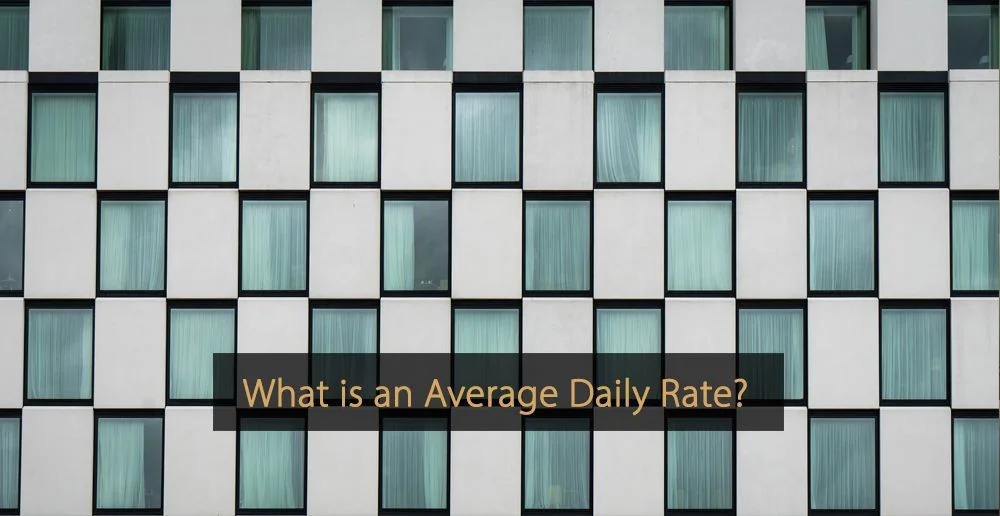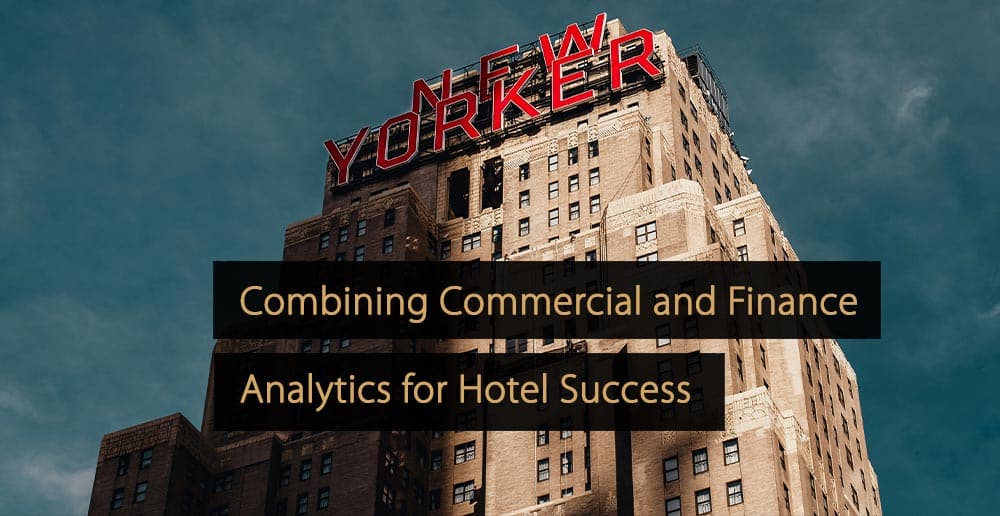Average daily rate (ADR) is a KPI commonly used for revenue management within the hotel industry. As a metric, ADR’s primary value is its ability to reveal the average rental income connected to occupied rooms each day, which is valuable for revenue management. It can give hotel owners an idea of their current operating performance, especially compared to other hotels with similar characteristics.
What Is ADR?
A hotel’s average daily rate (ADR) is the average rental income per occupied room in a specific period. By calculating their ADR, hotel owners can compare their performance with other hotels or against their historical performance, allowing them to change their revenue management.
As a metric, ADR is not concerned with revenue earned in other areas of the hotel. Complimentary rooms, house-use rooms, and other rooms given out free of charge are not factored into the calculation.
What Is the Importance of Average Daily Rate (ADR)?
So, what is ADR’s average daily rate in practice, and why is it so important in the hotel industry? By continually measuring your ADR, you have a basis for comparing with other hotels in your competitive set and a metric that allows you to compare your average room rate at different points in time.
Most hotels have a dynamic pricing strategy, meaning a direct relationship exists between ADR and demand. When demand is high, hotels can more easily fill rooms, so they can charge higher room rates, and the ADR will typically be higher. ADR also allows you to understand how different types of rooms in the hotel compare and can reveal how different types of hotel guests may be willing to pay different amounts for the same room.
How Do You Calculate ADR?
The simple formula for calculating the KPI average daily rate (ADR) is as follows:
ADR = Rooms Revenue Earned / Number of Rooms Sold
It is important to note that, in addition to complimentary rooms being discounted from calculations, revenue earned away from room revenue is not factored in either, nor is any money paid back to guests.
What Is an Example of Average Daily Rate (ADR)?
To answer the question, ‘What is the ADR average daily rate?’, it can be helpful to provide a working example. ADR is calculated by dividing total room revenue by the number of rooms that were actually sold in a defined period. So, if your hotel earns $30,000 by selling 150 rooms, your calculation would be $30,000 / 150 = $200.
Factors Affecting Average Daily Rate (AR)
Understanding the factors that significantly influence the Average Daily Rate (ADR) in the hospitality industry and adopting appropriate strategies are crucial for maximizing revenue, enhancing competitive positioning, and adapting to changing market conditions.
| Factor | Influence on ADR | Strategic Responses |
|---|---|---|
| Seasonality | ADR fluctuates with seasonal demand variations, typically higher during peak seasons. | Implement seasonal pricing strategies to maximize revenue during high demand and maintain occupancy in off-peak seasons. |
| Market Demand | General market conditions and demand levels directly affect ADR. | Use dynamic pricing models to adjust rates based on real-time market demand. |
| Competition | Rates offered by competitors in the same market influence a hotel’s ADR. | Regularly benchmark against competitors; adjust rates to stay competitive without undercutting value. |
| Online Ratings and Reviews | Positive reviews and higher ratings can allow for higher ADR due to perceived value. | Focus on customer satisfaction and online reputation management to support higher ADRs. |
Uses and Limitations
The ultimate goal should be to increase ADR through effective pricing and promotions so that this KPI can form a significant part of a revenue management strategy. With that being said, ADR does not give a true account of overall hotel performance because it does not factor in revenue from other sources or expenses.
Strategies to Optimize Average Daily Rate (ADR) in Hotel Revenue Management
With the ‘What is ADR average daily rate?’ question answered, you should also focus on understanding how the metric can be influenced. Below, you can learn about key strategies for optimizing your ADR performance metric.
Video: Optimizing Your ADR
Offer Packages & Promotions
The ADR metric relies heavily on occupancy, so one way to improve your ADR is to offer packages and promotions to ensure your hotel is fully booked whenever possible. This strategy is especially important during times of low demand when it can incentivize guests to book a room and help your hotel avoid vacancies.
Rate Parity and Segmentation
Rate parity focuses on ensuring pricing is consistent across your various distribution channels, which can help ensure all customers see fair prices. In addition, however, you can segment the market by customer type to generate as much revenue as possible from the segments that may be willing to pay more, such as business customers. It can also be a good idea to offer discounts on direct bookings, as these are not subject to commission fees.
Leverage Online Reviews
Hotels should leverage the power of online reviews to boost their reputation and make it possible to charge higher room rates. Encourage your guests to leave reviews and highlight some of the positive feedback you have received across your marketing materials to increase trust, generate more bookings, and boost your ADR.
More Revenue Management KPIs
KPI stands for Key Performance Indicator. With KPI, you can measure and identify areas of success and failure and trends related to demand and customer behavior. Besides ADR, other important Revenue Management KPIs are:
- What Is RevPAR?
- What Is RevPOR?
- Hotel KPIs explained: ADR, REVPAR and GOPPAR
- What is an Occupancy Rate?
- What does EBITDA stand for?
- NRevPAR Clearly Explained!
- What is ARPA?
- What is TRevPar?
- RevPAR versus GOPPAR
More Tips to Grow Your Business
Revfine.com is the leading knowledge platform for the hospitality and travel industry. Professionals use our insights, strategies, and actionable tips to get inspired, optimize revenue, innovate processes, and improve customer experience.Explore expert advice on management, marketing, revenue management, operations, software, and technology in our dedicated Hotel, Hospitality, and Travel & Tourism categories.
This article is written by:
Hi, I am Martijn Barten, founder of Revfine.com. With 20 years of experience in the hospitality industry, I specialize in optimizing revenue by combining revenue management with marketing strategies. I have successfully developed, implemented, and managed revenue management and marketing strategies for individual properties and multi-property portfolios.










Leave A Comment